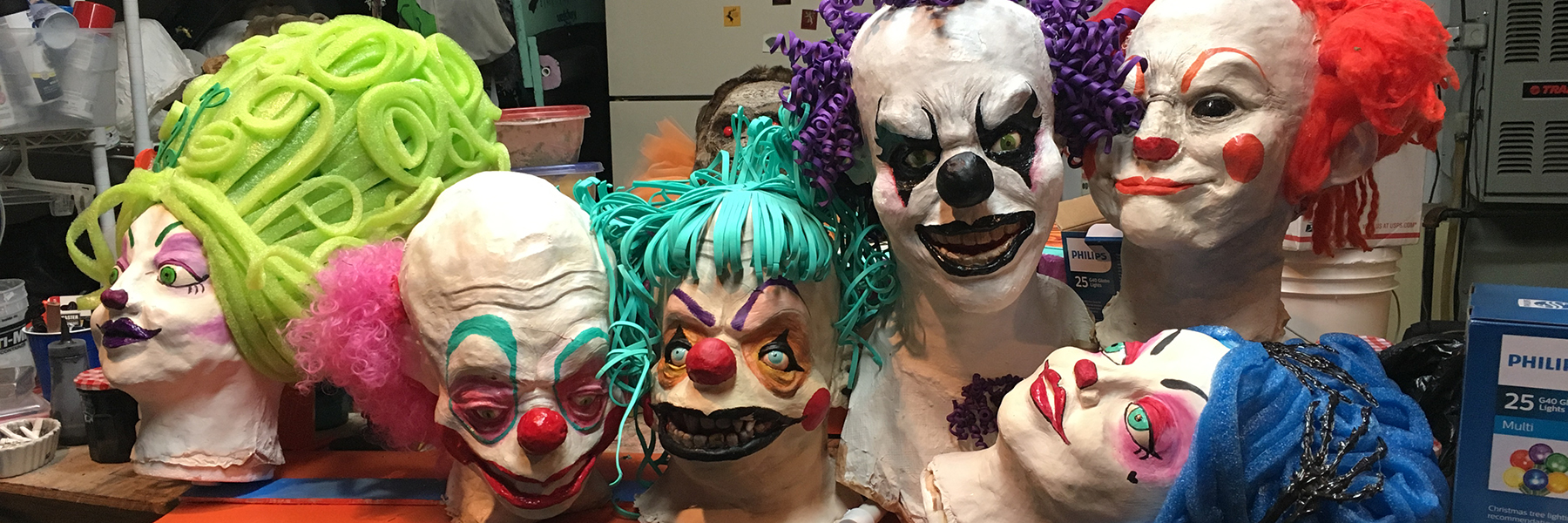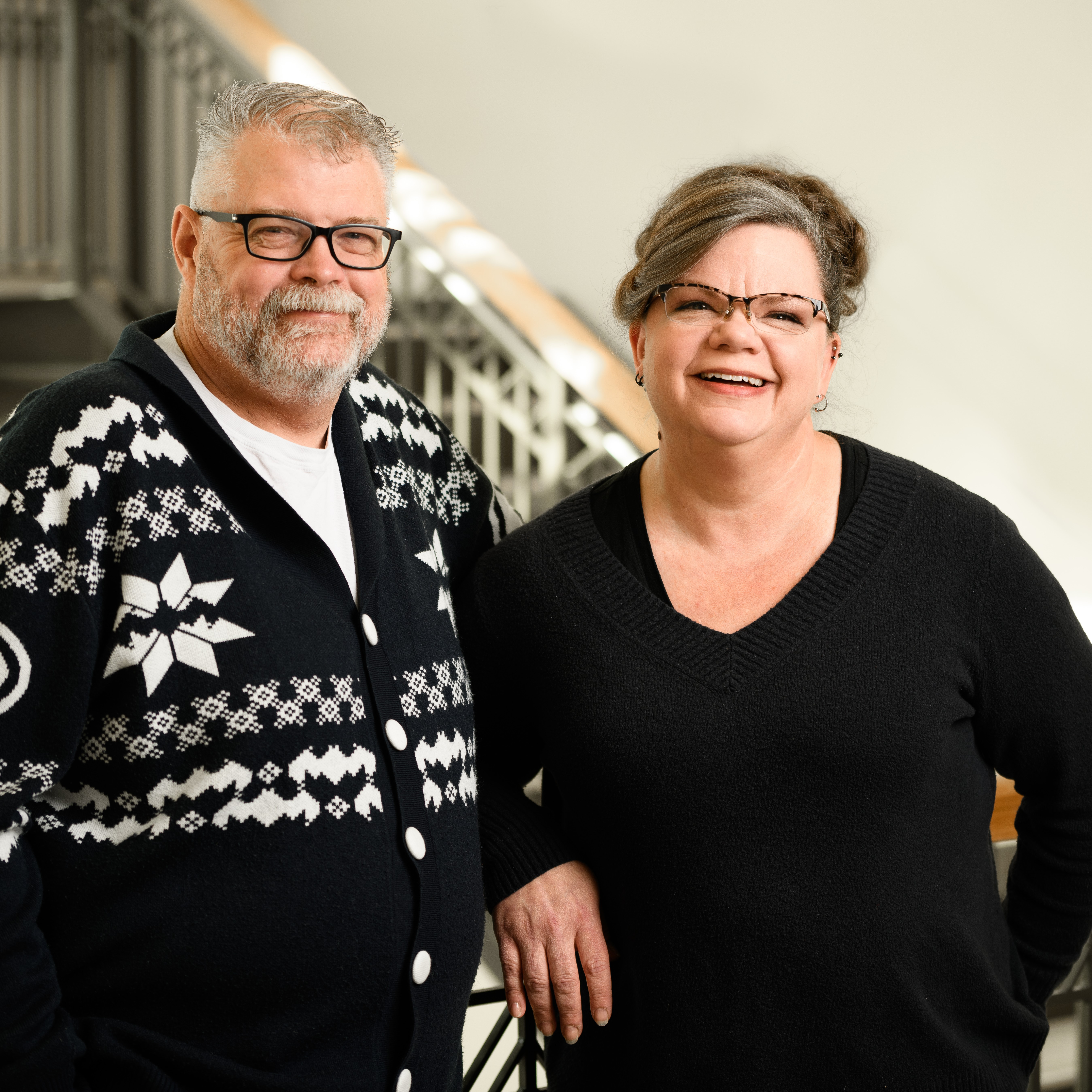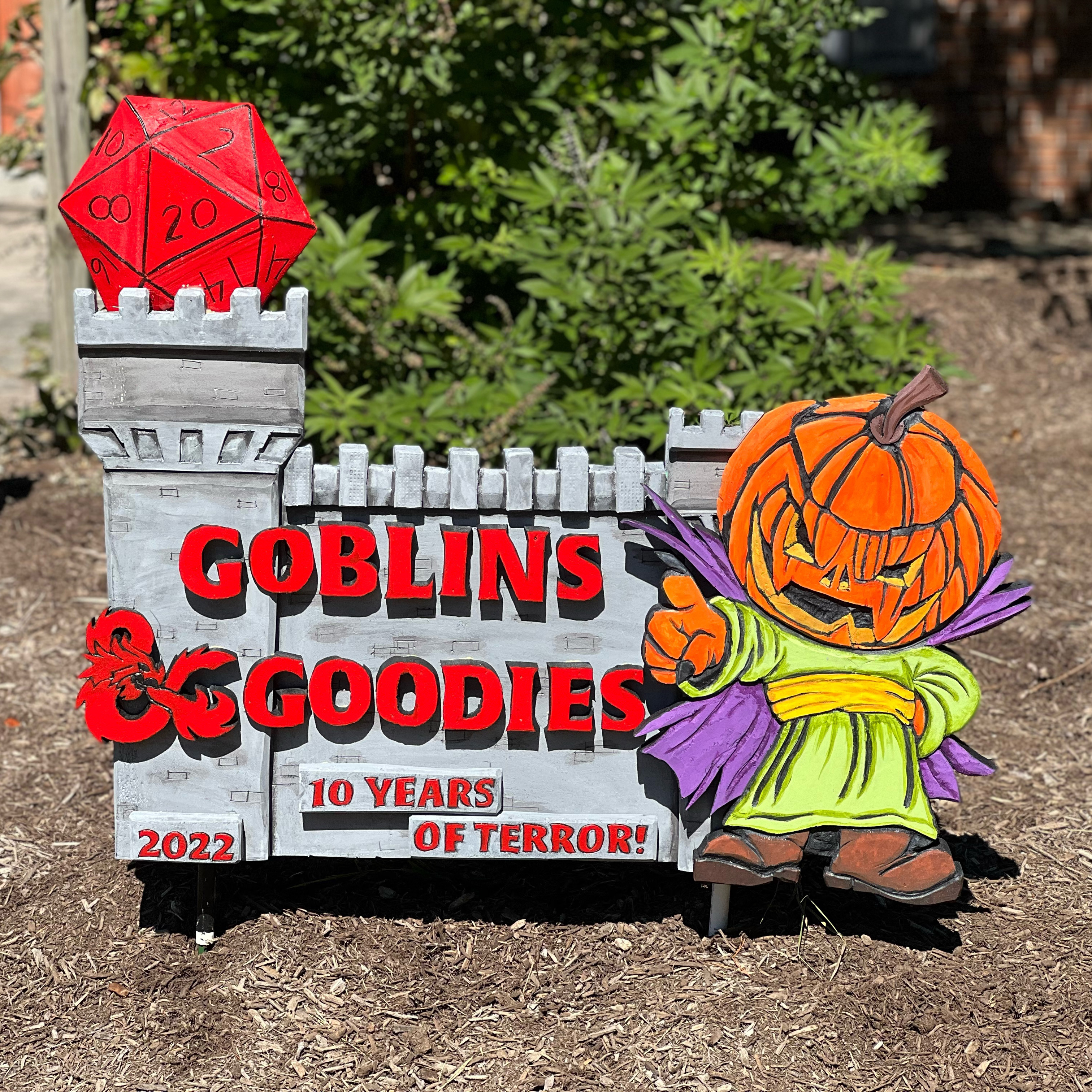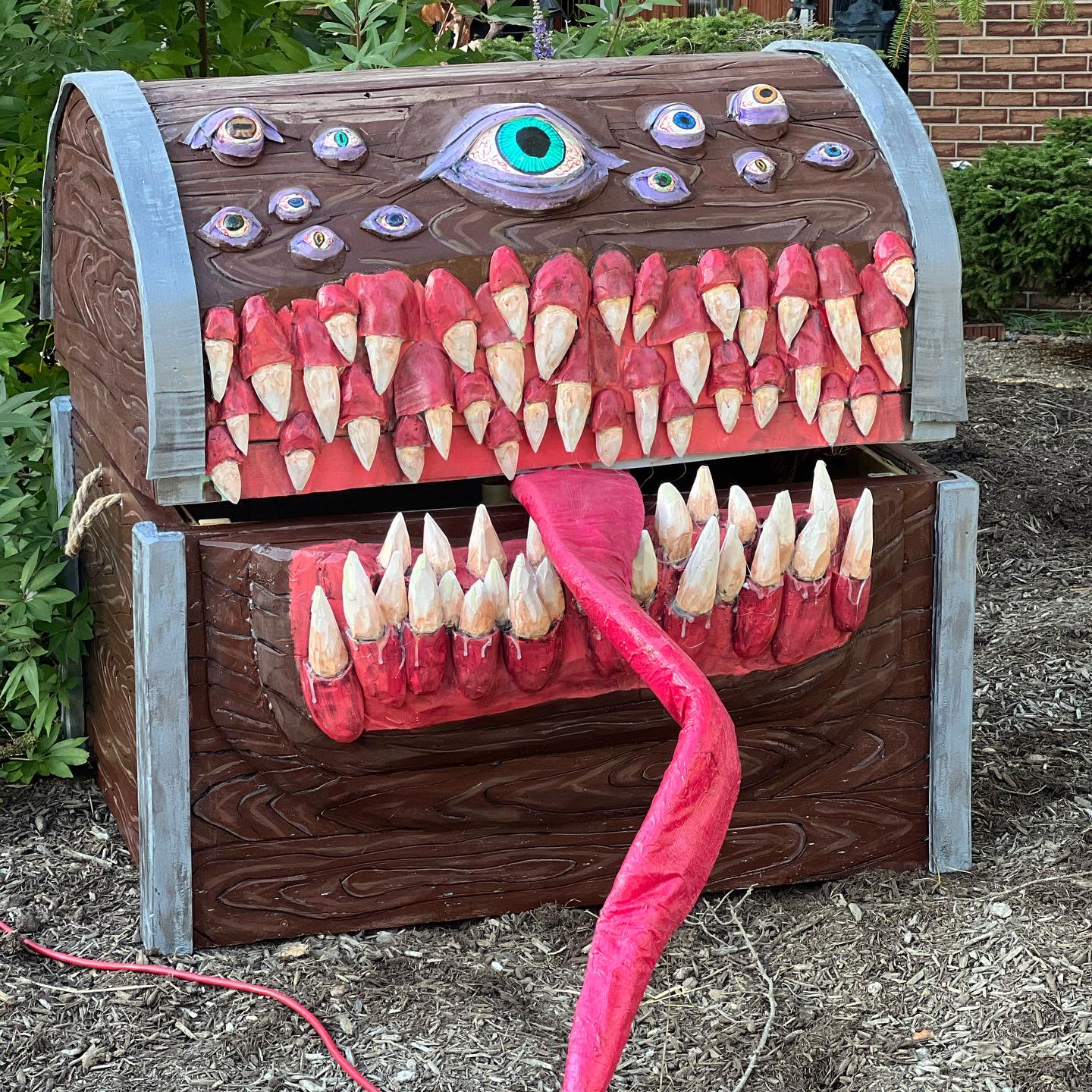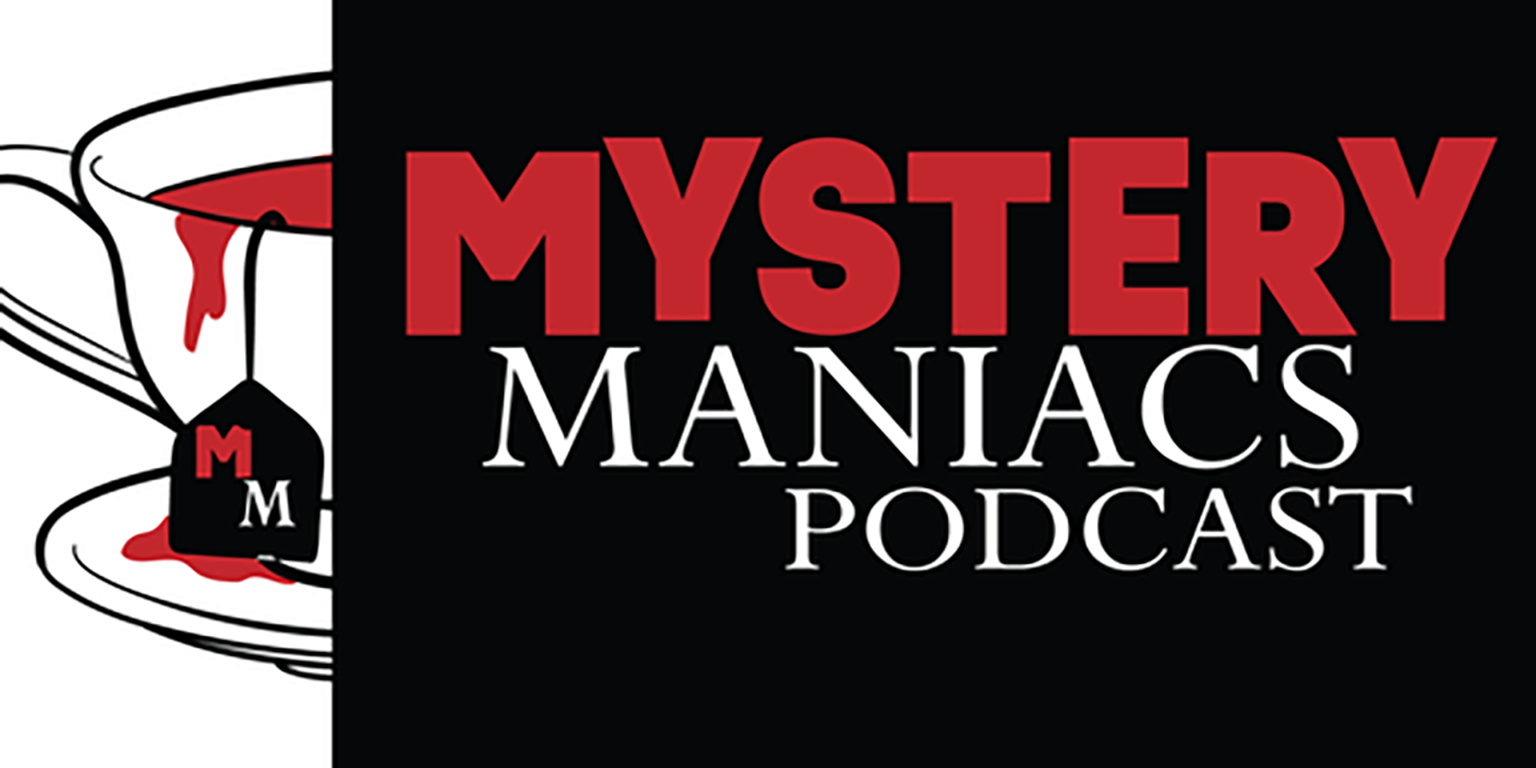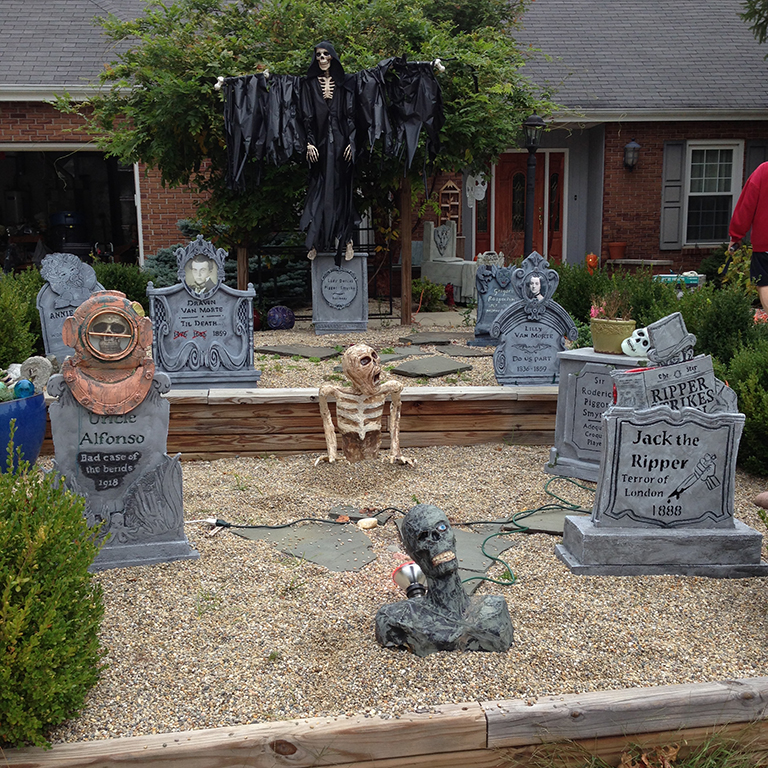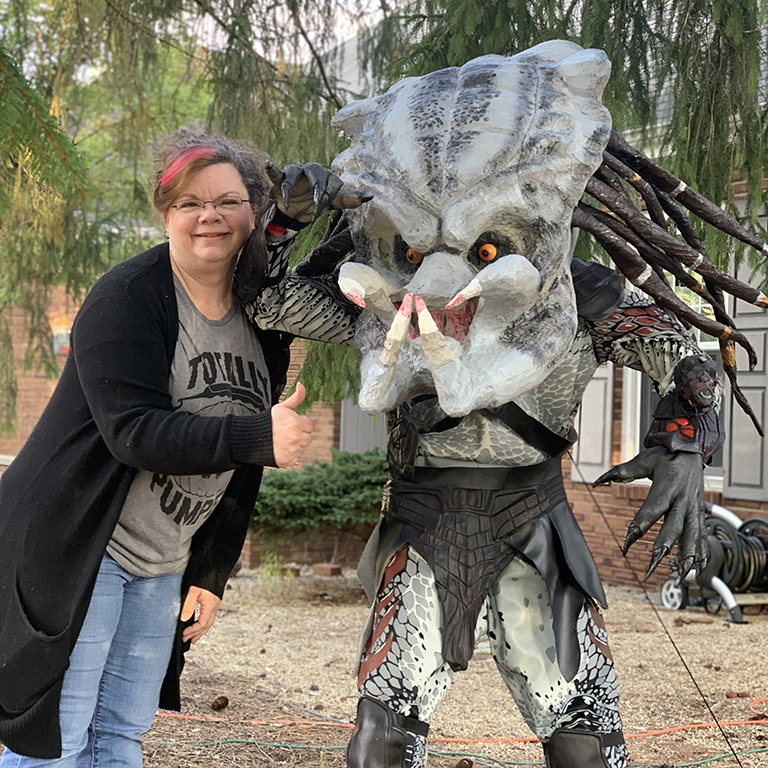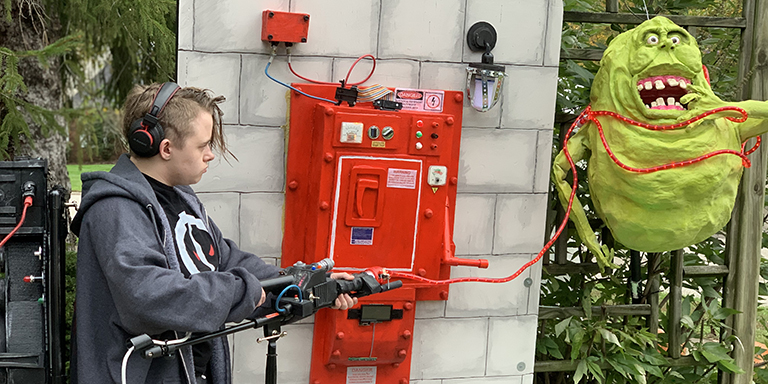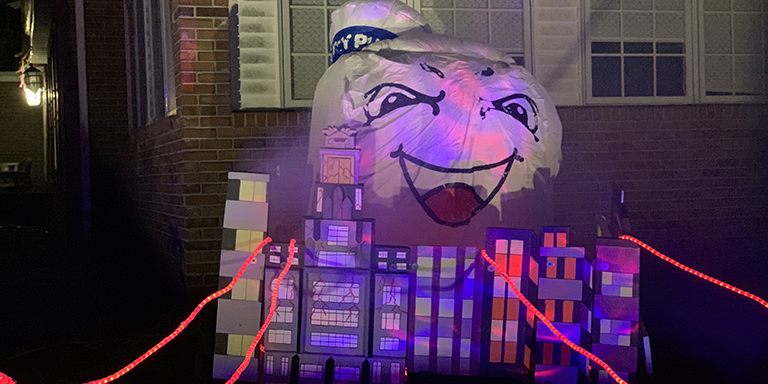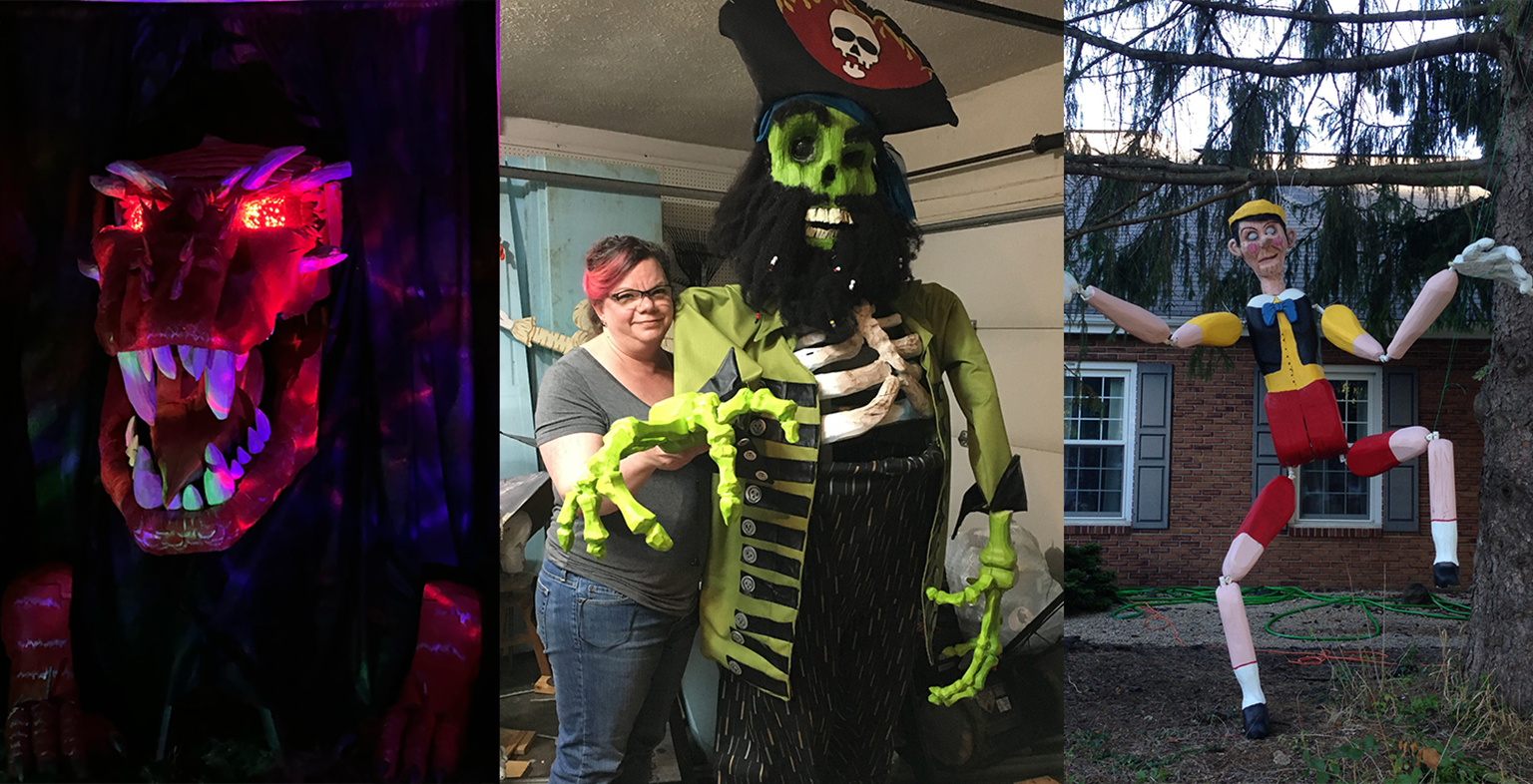Q: Sarah, how did your career path lead you to IU? What do you like most about your work at Kelley?
A: We moved to Bloomington while I was working on my dissertation so Mark could start his degree in telecommunications. My research centers around how people learn in virtual environments, and it just so happened that the executive education group at Kelley was investigating using virtual environments for corporate training at the same time. They asked me to consult on a project, then hired me, and I’ve been here ever since. Six years ago, I moved from my position within executive education to be the director of learning technology for the whole school, as well as teaching Creativity and Communication in the marketing department. The best thing about my job is that I get to learn every day. I get to try new things, experiment with my team, and help faculty implement innovations in their own courses. It’s an adventure every day with great people.
Q: Mark, same question—you were the digital media arts teacher and educational technology coordinator at Harmony School. What inspired you to return to higher ed?
A: I have always felt very at home in higher ed. Harmony School was a great experience, but when our kids graduated, I felt like it was time for a change. The job at Kelley came along just as I was ready to do something different.
Q: Sarah, you’ve written dozens of journal articles and conducted numerous presentations throughout the U.S., as well as workshops on campus and in the community. Where do you see topics trending as we look ahead to 2023 compared with, say, 10 years ago?
A: If you’d asked me that question a few years ago, prior to Covid, my answer would have been completely different. The pandemic forced us all to be apart from one another and made us appreciate how much we value real connections. Technologies that allow us to be genuine with one another, that become almost invisible in our interactions, are the future. Given my research, I’m sure a lot of people expect me to say that the Metaverse is going to be huge, especially with companies like Facebook being so invested. But those of us who have studied prior waves of virtual reality popularity have seen it all before. We know that, in the end, we don’t want bulky devices and artificial virtual selves mediating our relationships with other people. That’s not to say there aren’t situations in which virtual spaces are the right tool for the job. Those situations just aren’t ubiquitous.
Q: Mark, you’ve written books and journal articles on technology and produced movies—any creative projects in the works?
A: Along with helping with the Halloween decorations, I have a couple of creative projects on the go. For the past three years, Sarah and I have hosted the weekly "Mystery Maniacs" podcast. We have over half a million downloads and have listeners all over the world. In addition, I run a comic book company that publishes two comics, S.P.I.R.I.T. and ZED. This includes running Kickstarters, attending conventions, and working with artists. I also like to write and record music in my home studio.


